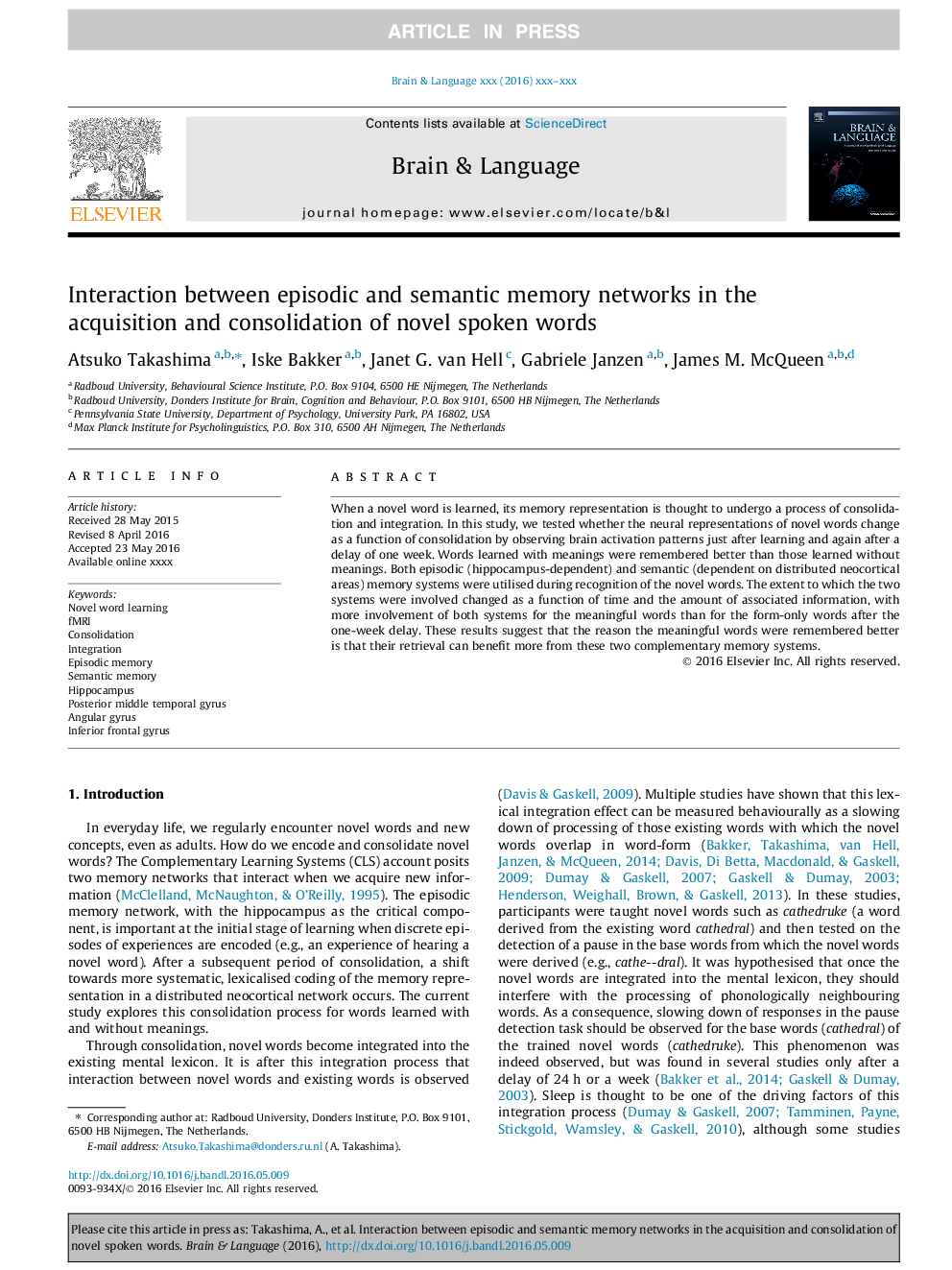ترجمه فارسی عنوان مقاله
تعامل بین شبکه های حافظه اپیزودیک و معنایی در دستیابی و تثبیت کلمات جدید گفتاری
عنوان انگلیسی
Interaction between episodic and semantic memory networks in the acquisition and consolidation of novel spoken words
| کد مقاله | سال انتشار | تعداد صفحات مقاله انگلیسی |
|---|---|---|
| 119404 | 2017 | 17 صفحه PDF |
منبع

Publisher : Elsevier - Science Direct (الزویر - ساینس دایرکت)
Journal : Brain and Language, Volume 167, April 2017, Pages 44-60
ترجمه چکیده
وقتی یک کلمه جدید یاد می گیرد، تصور حافظه آن به یک فرآیند ادغام و ادغام تبدیل می شود. در این مطالعه، ما بررسی کردیم که آیا بازنمود عصبی از کلمات جدید به عنوان یک تابع از ادغام با مشاهده الگوهای القای مغز، فقط پس از یادگیری و بعد از تاخیر یک هفته تغییر می کند. واژه های آموخته شده با معانی بهتر از کسانی است که بدون معانی آموخته می شوند به یاد می آورند. هر دو اپیزودیک (وابسته به هیپوکامپ) و معنایی (وابسته به نواحی توزیع شده نئوکورتیکی) سیستم حافظه در هنگام شناسایی کلمات جدید مورد استفاده قرار گرفتند. میزان استفاده از این دو سیستم به عنوان تابعی از زمان و میزان اطلاعات مربوط به آن، با درگیری بیشتر در هر دو سیستم برای کلمات معنی دار تغییر می کند، نسبت به کلمات تنها پس از یک تاخیر یک هفته ای. این نتایج نشان می دهد که دلیل این که کلمات معنی دار به یاد می آورند بهتر است بازیابی آنها می تواند بیشتر از این دو حافظه مکمل حافظه مفید باشد.

